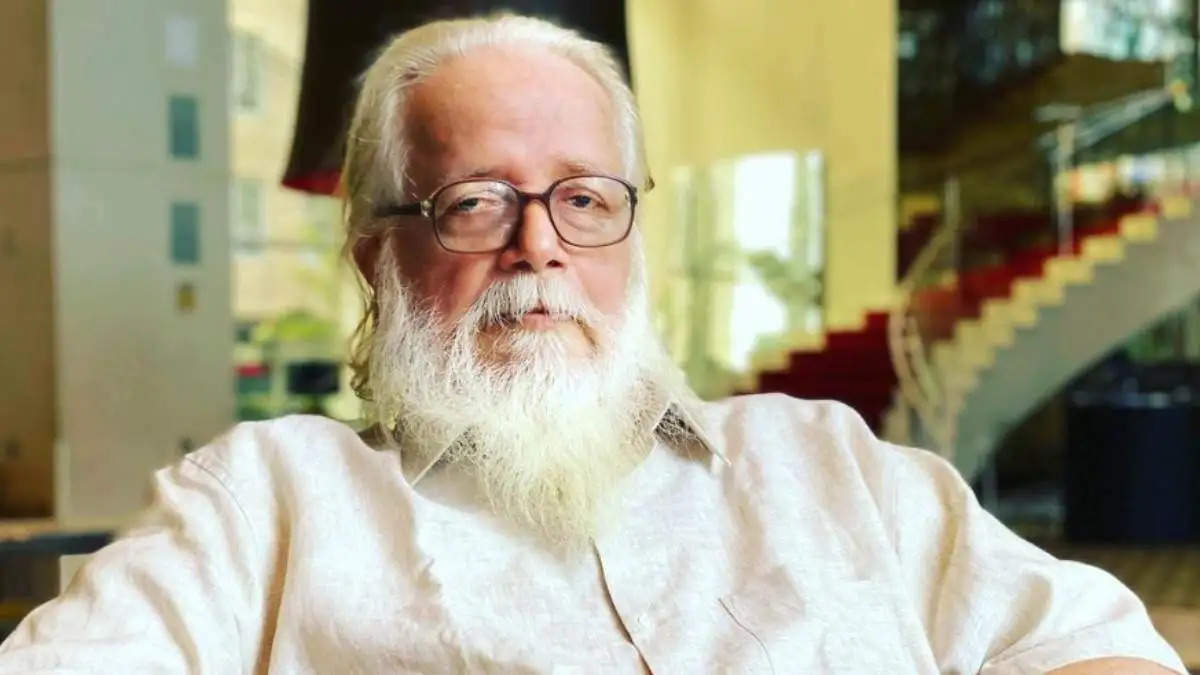Nambi Narayanan Birthday Know who is Nambi Narayanan, who spent time in jail on charges of espionage, still got Padma Bhushan

Nambi Narayanan is an Indian scientist and aerospace engineer. As a senior officer of the Indian Space Research Organization (ISRO), he was in-charge of the Cryogenic Division. In 1994 he was falsely accused and arrested. The Central Bureau of Investigation (CBI) dismissed the charges against him in 1996 and the Supreme Court of India acquitted him in 1998. In 2018, the Supreme Court, through Dipak Misra's bench, ordered Narayanan to recover compensation of Rs 50 lakh from the Kerala government within eight weeks, and the Supreme Court headed by retired Supreme Court judge DK Jain. To investigate the role of Kerala Police officials in the arrest of Narayanan.
livelihood
Narayanan first met ISRO Chairman Vikram Sarabhai in 1966 at the Thumba Equatorial Rocket Launching Station in Thumba, Thiruvananthapuram, when he was working there as a payload integrator. Sarabhai, then chairman of the Space Science and Technology Center (SSTC), recruited only highly qualified professionals. In pursuit, Narayanan joined an engineering college in Thiruvananthapuram for an M.Tech degree. Upon learning of this, Sarabhai encouraged him to pursue higher education only if he went to one of the Ivy League universities. Subsequently, Narayanan earned a NASA fellowship and joined Princeton University in 1969. He completed his Master's program in Chemical Rocket Propulsion under Professor Luigi Croco in a record ten months. Despite a job offer in the US, Narayanan returned to India with expertise in liquid propulsion, at a time when Indian rockets still relied on solid propellants.
Narayanan introduced liquid fuel rocket technology to India in the 1970s, when APJ Abdul Kalam's team was working on solid motors. He reversed the requirement of liquid fuel engines for ISRO's future civilian space programmes, and received encouragement from then ISRO chairman Satish Dhawan and his successor UR Rao. Narayanan developed liquid-propellant motors, first creating a 600 kg (1,300 lb) thrust engine in the mid-1970s, and then moving on to larger engines.
In 1992, India signed an agreement with Russia for transfer of technology to develop cryogenic fuel-based engines and purchase of two such engines for Rs 235 crore. However, US President George H.W. This was not accomplished after Bush wrote a letter to Russia, objecting against the transfer of technology, and threatening to blacklist the country from the select five clubs. Russia under the leadership of Boris Yeltsin succumbed to pressure and refused to give this technology to India. To overcome this monopoly, India signed a new agreement with Russia to manufacture four cryogenic engines along with two mockups for a total of US$9 million after issuing a global tender without formal transfer of technology. ISRO had already reached a consensus with Kerala Hitech Industries Limited, which had offered the cheapest tender to build the engine. But in late 1994 it failed as an espionage scandal emerged.
Working for nearly two decades with French assistance, Narayanan's team developed the engine used by several ISRO rockets, including the Polar Satellite Launch Vehicle (PSLV), which took Chandrayaan-1 to the Moon in 2008. The Vikas engine is used as the second stage of the PSLV and the second and four strap-on stages of the Geosynchronous Satellite Launch Vehicle (GSLV).
spying charges
In 1994, Narayanan was falsely accused of sharing vital defense secrets with two alleged Maldivian intelligence officers, Maryam Rasheed and Fauzia Hassan. Defense officials said the secrets relate to highly confidential “flight test data” from rocket and satellite launch experiments. Narayanan was one of two scientists (the other being D. Sasikumaran) who were accused of selling secrets to the tune of millions. However, his home looked nothing ordinary and showed no signs of the corrupt interests of which he was accused.

